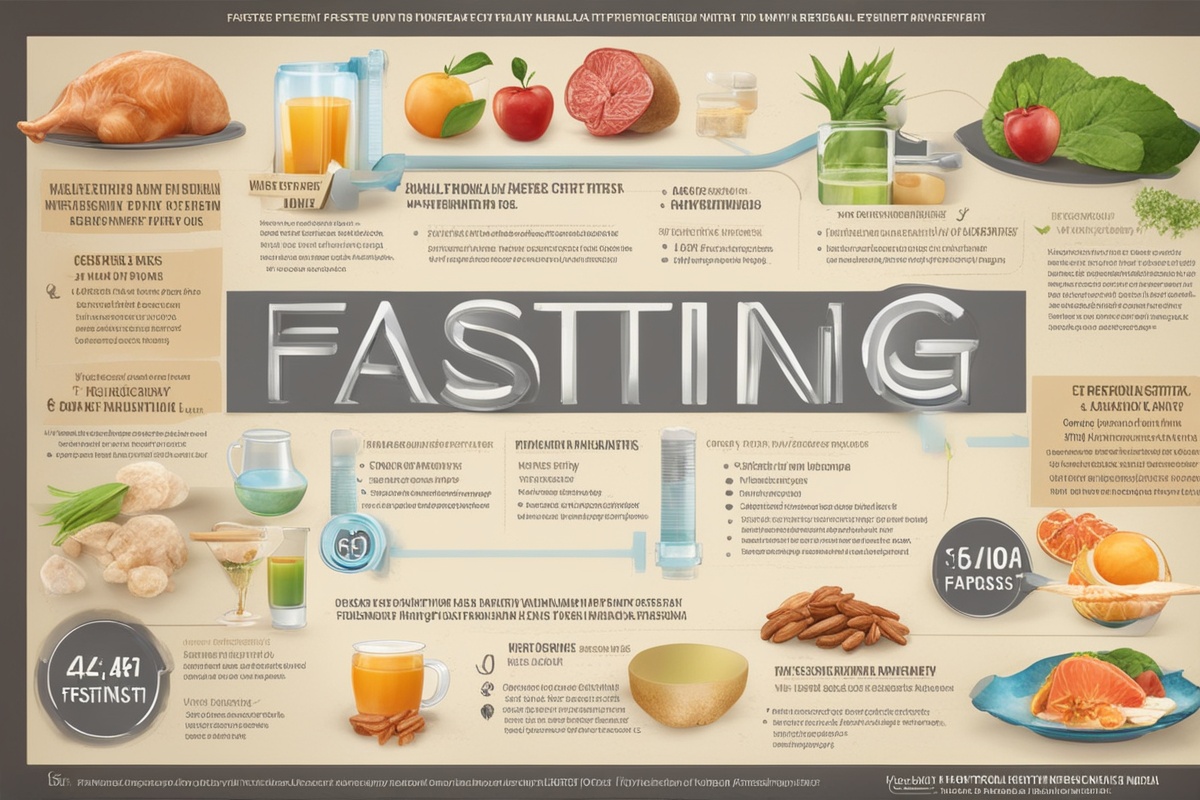Hey there, health enthusiasts! If you’ve been exploring ways to boost your energy, shed stubborn pounds, or simply feel better in your own skin, fasting might already be on your radar. But have you dug into the incredible metabolic fasting benefits that come with it? fasting isn’t just about skipping meals; it’s a powerful tool to reset your body’s metabolic engine. In this post, we’re diving deep into how fasting can supercharge your metabolic health, backed by science and paired with actionable tips. Whether you’re a seasoned faster or just curious about intermittent fasting benefits, stick around to learn how this practice can transform your wellness game.
What Is Metabolic Health and Why Does It Matter?
Let’s start with the basics. Metabolic health refers to how well your body processes and uses energy from food. It’s tied to key factors like blood sugar levels, insulin sensitivity, cholesterol, and blood pressure. When your metabolism is humming along smoothly, your body efficiently burns fuel, maintains stable energy, and keeps inflammation in check. Poor metabolic health, on the other hand, can lead to issues like diabetes, obesity, and heart disease. So, where does fasting fit in? Fasting, especially intermittent fasting, acts like a tune-up for your metabolic system, offering benefits that go beyond just weight loss. By giving your body a break from constant digestion, you allow it to focus on repair and optimization—key pillars of the metabolic fasting benefits we’ll explore.
How Fasting Boosts Metabolic Flexibility
One of the standout perks of fasting is its ability to improve metabolic flexibility—your body’s knack for switching between burning carbs and fats for fuel. In our modern, carb-heavy diets, many of us are stuck in “sugar-burning” mode, which can lead to energy crashes and fat storage. Fasting flips the switch. After about 12–16 hours without food, your body depletes glycogen stores and starts tapping into fat reserves through a process called ketosis. This shift is a cornerstone of metabolic fasting advantages. Research, like a 2019 study in the journal Obesity, shows that intermittent fasting enhances fat-burning efficiency, helping your body adapt to different energy sources with ease. The result? More stable energy and less reliance on constant snacking.
Fasting and Insulin Sensitivity: A Game-Changer
Let’s talk about insulin, the hormone that regulates blood sugar. When you’re constantly eating, especially sugary or processed foods, your insulin levels stay elevated, which can lead to insulin resistance over time—a precursor to type 2 diabetes. Fasting offers a powerful reset. By reducing the frequency of meals, you lower insulin spikes and give your cells a chance to become more sensitive to it. A 2020 review in Cell Metabolism highlighted that intermittent fasting can improve insulin sensitivity by up to 30% in some individuals. This is one of the most compelling metabolic health benefits of fasting, as it helps prevent blood sugar rollercoasters and reduces the risk of chronic diseases. Imagine feeling less hungry and more in control of your cravings—that’s the power of balanced insulin.
Practical Tips to Maximize Metabolic Fasting Benefits
Ready to harness these metabolic fasting benefits for yourself? Fasting doesn’t have to be intimidating, and you don’t need to dive into a 3-day water fast right away. Here are some practical ways to get started and optimize your metabolic health through fasting:
- Start with a beginner-friendly approach like the 16:8 method, where you fast for 16 hours and eat during an 8-hour window. It’s sustainable and effective for boosting fasting metabolic health.
- Stay hydrated during fasting periods with water, herbal tea, or black coffee. Dehydration can mimic hunger and stall metabolic benefits.
- Focus on nutrient-dense meals when you break your fast—think lean proteins, healthy fats, and fiber-rich veggies to support metabolic balance.
- Avoid overeating after fasting; listen to your body to prevent undoing the intermittent fasting metabolic benefits.
- Be consistent but flexible. Even fasting 2–3 days a week can yield noticeable improvements in energy and metabolism.
Common Challenges and How to Overcome Them
While the metabolic fasting benefits are undeniable, it’s not always smooth sailing. Some folks experience hurdles when starting out, but don’t worry—there are ways to navigate them. Let’s break down a few common challenges and solutions to keep you on track with your fasting and metabolic health goals:
- Hunger pangs: These are normal at first. Distract yourself with light activity or sip on water to curb false hunger signals.
- Low energy: If you feel sluggish, ensure you’re getting enough electrolytes like sodium and potassium during fasts.
- Social pressures: Eating with friends or family can be tricky. Plan your fasting windows around social events when possible.
- Headaches: Often tied to dehydration or caffeine withdrawal, these can be eased by drinking more water or tapering off coffee slowly.
The Long-Term Impact of Fasting on Metabolic Health
Beyond the immediate perks, fasting can have lasting effects on your metabolic wellness. Studies, such as those published in the Journal of Clinical Endocrinology & Metabolism, suggest that regular fasting may lower inflammation markers, improve gut health, and even slow cellular aging through a process called autophagy—where your body cleans out damaged cells. These long-term metabolic fasting advantages mean you’re not just feeling better today; you’re investing in a healthier tomorrow. Plus, as your body becomes more metabolically flexible, you’re less likely to regain lost weight, making fasting a sustainable tool for weight management. It’s not a quick fix but a lifestyle shift that aligns with how our bodies were designed to function.
So, there you have it—a deep dive into the transformative metabolic fasting benefits that can elevate your health to new heights. From boosting metabolic flexibility and insulin sensitivity to supporting long-term wellness, fasting offers a natural, science-backed way to optimize how your body works. Whether you’re looking to lose weight, gain energy, or simply feel more vibrant, integrating fasting into your routine could be the key. Start small, stay consistent, and listen to your body as you explore the incredible fasting metabolic health perks. Have you tried fasting yet? Drop your experiences or questions below—I’d love to hear how it’s working for you!






